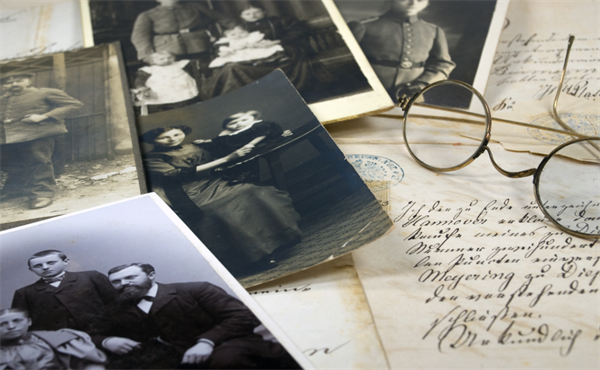
Make this the year you take your family history beyond the basics, with Family Tree Magazine’s guide to exploring the records held at archives, record offices and libraries around the UK.
Today’s family tree researchers are fortunate to be able to access so many digitised records from the comfort of home, with a wealth of data available online which can save us hours of research in a record office or library. However, as you progress beyond beginner stage, your search for ancestors is sure to lead you to the rich resources held by the UK’s record offices, archives and libraries, and this is where your family tree moves to the next level as you access a whole new wealth of information.
1. Explore archives, record offices and libraries
Britain’s local and county record offices, archives and libraries are the custodians of millions of records relating to our ancestors, and these form the building blocks of family history research. By using information from parish records, the census, newspapers, businesses and councils, you can explore what life was like for your ancestors and build your research into so much more than just names and dates on a family tree chart.
So, how can you work out what information is relevant to your ancestors, and where you can find it? Discovery, from The National Archives is a UK-wide catalogue which brings together listings of records held by more than 2,500 repositories across the country. More than 32 million records are listed, 9 million of which are accessible online.
2. Prepare for your visit
Once you’ve identified what documents you’d like to see and where they’re kept, there are a few simple preparations you can make ahead of your visit, to make the most of your research trip. Firstly, take a copy of your family tree (or the relevant section) so that you have crucial dates relating to your ancestors to hand. If you’ve been able to find catalogue reference numbers for the records you’re going to be looking at, take a note of these; you may even be able to order the documents beforehand to be waiting when you arrive.
Find out whether the archive you’re visiting allows the use of laptops and cameras, and if it’s your first visit, you’ll probably need to bring along a couple of forms of ID (such as a passport and utility bill) so you can be issued with a reader’s ticket. Also pack a couple of pencils and a notebook, as most archives don’t allow the use of pens, to protect the documents in their care.
Finally, once you’re at the archive, be sure to take a note of what facilities are available to researchers. Many places offer free of charge access to family tree websites such as Ancestry and Find My Past, and many have libraries of local history books which can be hard to find elsewhere.
3. Visit the National Archives
The National Archives at Kew is the official archive of the UK government and home to millions of records relating to life in Britain over the centuries. Members of the public are welcome to visit (Tuesday to Saturday) and view the records free of charge.
The reference library at National Archives is home to more than 65,000 printed and online sources, and you can check out the reference library catalogue online before your trip, to give you an idea of what records might be useful to you.
On your first visit, be sure to call in at the ‘start here’ desk on the first floor, where staff will help familiarise you with what’s kept where and can offer advice on how to make the most of your day. You can apply for a reader’s ticket (bring two forms of ID) on the second floor and then you’re free to start your research.
4. Join a family history society
Whatever stage you’re at with your family history, consider joining a family history society. The UK is home to hundreds of societies dedicated to tracing ancestors in different parts of the country, or those which specialise in specific surnames or ancestors who belonged to a particular religion or nationality.
If you’d like to get involved, a good starting point is to visit the Federation of Family History Societies website where you can explore a list of British and overseas societies. Consider joining two societies – one in your own area, where you’ll be able to easily attend meetings and meet other enthusiasts, as well as a society in the region where the majority of your ancestors were based, to give you access to specialist knowledge of an area of the country which might not be familiar to you.
Your out & about essentials
Be well prepared for your research trips with our essentials tool kit:
- Sharpened pencils and a notebook
- A copy of your family tree
- Essential names and dates relating to the ancestor you’re researching
- Camera and laptop (if the archive allows these)
- Reference numbers for documents you’d like to look at (or pre-order these beforehand)
 RSS Feed
RSS Feed
